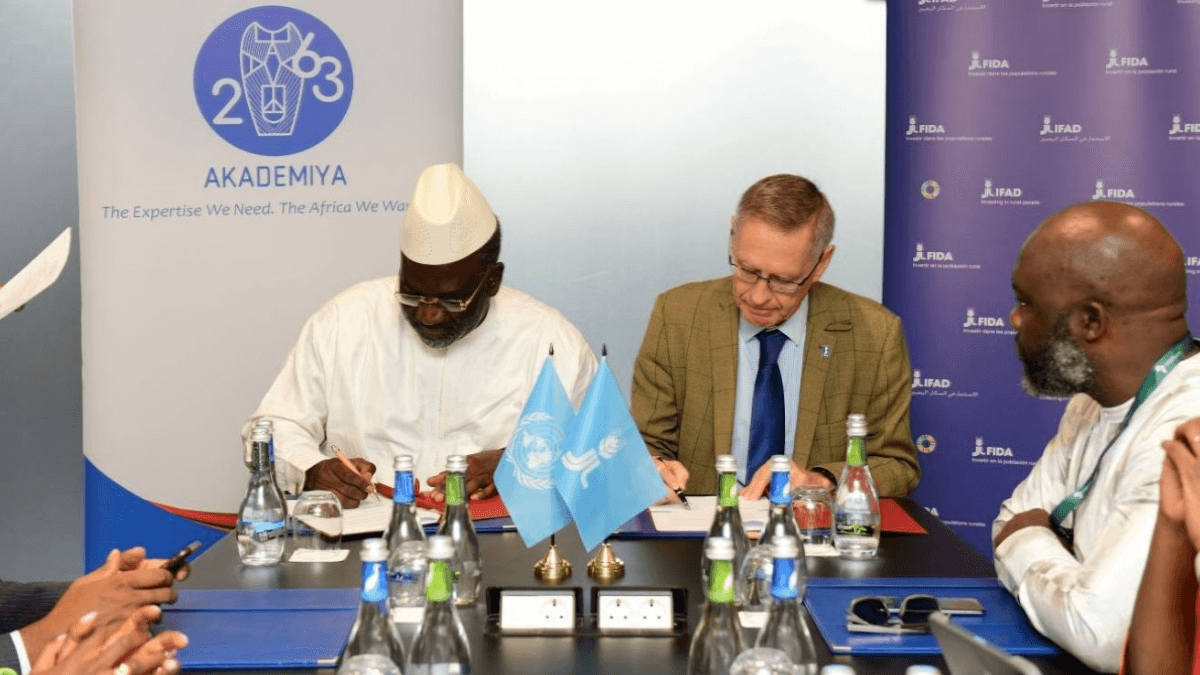News in brief:
– IFAD and AKADEMIYA2063 have partnered to strengthen Africa’s agrifood systems with data-driven policies.
– The partnership focuses on improving food security, nutrition, and climate resilience through capacity-building.
The International Fund for Agricultural Development (IFAD) and AKADEMIYA2063 have recently signed a landmark partnership to promote the transformation of Africa’s agrifood systems. This collaboration, formalised with the signing of a Memorandum of Understanding (MoU), is aimed at driving evidence-based policymaking, monitoring, and evaluation to improve food security and rural development across Africa.
The partnership is set to provide vital support for farmers worldwide by improving food production, nutrition, and climate resilience in Africa. These efforts could serve as a model for other regions facing similar challenges. African farmers will benefit from better policies, stronger support systems, and enhanced knowledge-sharing, which could inspire change globally.
Building data-driven agriculture
AKADEMIYA2063 is a pan-African non-profit research organisation headquartered in Rwanda and with a regional office in Senegal. It was established to acheive the African Union’s (AU) Agenda 2063. Its overall mission is to create state-of-the-art technical capacities to support the efforts by AU Member States towards transforming national economies to boost their economy and improve livelihoods.
A key focus of the agreement is the use of data-driven decision-making. This means using data, statistics, and analytics to shape agricultural policies and strategies. Such approaches will help African countries develop more targeted agricultural programs, improving farming efficiency and boosting yields. Farmers, particularly in rural areas, will see improvements in how policies are designed and implemented, ensuring resources are used effectively to tackle real challenges like climate change and food insecurity.
IFAD and AKADEMIYA2063 aim to strengthen the capacity of African experts in data analysis and policy design. By equipping local professionals with the skills to gather and interpret agricultural data, the agreement supports long-term development in the region. It is crucial for African countries to have their own expertise in agriculture, ensuring sustainable, locally adapted solutions.
How will this partnership work?
- Impact Assessments: IFAD and AKADEMIYA2063 will conduct assessments to measure the success of projects they fund, ensuring that lessons learned are applied to future programs.
- Capacity Building: African institutions and professionals will receive training to improve their ability to monitor and evaluate agricultural programs, increasing efficiency in rural development.
- Joint Events: The partners plan to host conferences, workshops, and policy dialogues to share their findings and promote best practices.
The collaboration is also designed to address two major global challenges: climate change and food insecurity. Africa, being highly vulnerable to these issues, stands to benefit greatly from data-based solutions. Farmers will receive support in adapting to changing weather patterns, reducing the risk of crop failure, and improving food supplies for local communities.



